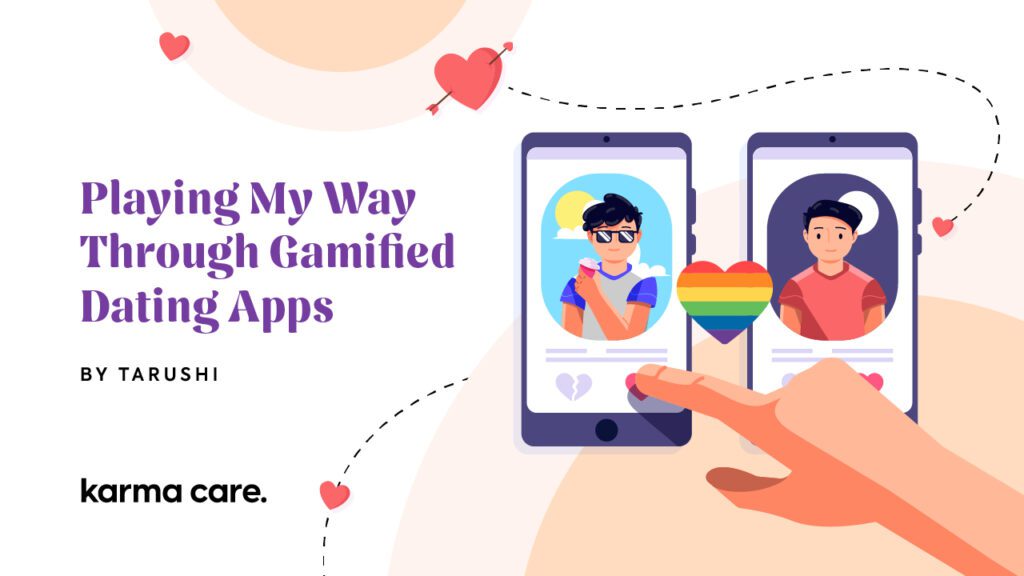Playing My Way Through Gamified Dating Apps
The introduction of dating apps in the 21st century has completely changed how we view and experience love. Love is now a game, one with swiping, liking and paying for a better chance at a reward. I’ll admit it—I’ve fallen into the trap of signing up and mindlessly swiping through profiles. It’s hard not to join in on the bandwagon, the FOMO always gets to you (read:me). It’s also very hard to take it all too seriously when these apps are designed to feel like a game, making the search for love entertaining and addictive.
The cost of entry is minimal; most apps are free. These days, it barely takes a few nudges from a friend asking you to make a profile to get on one. It’s really not that deep. But it should be. Because when access to potential partners becomes this easy and consequence-free, we often forget the obvious: the person on the other side of the screen is just that—a person, with emotions and experiences just like ours.
Benefits of Digital Dating
Not all swipes are a left turn. In a world that feels increasingly isolated and capitalized, dating apps offer undeniable benefits. They give us the freedom to meet people outside our usual social circles. For perhaps the first time in history, we can connect with a vast pool of potential partners. But this freedom comes with its own set of challenges.
The Hidden Costs of Swipe Culture
Swiping right isn’t always right / The Downside of Endless Swiping
What happens when we get lost in the endless pursuit of connection? Dating fatigue, for one. The toll on users is real, people get tired of looking for love. But beyond personal exhaustion, there’s another harm—the impact on the people we interact with.
Ghosting and the bad feelings it brings are the tip of the iceberg. Behind a screen, our biases often amplify. People considered “conventionally attractive” tend to have higher success rates on these platforms because their photos are the first thing others see. I’ll confess, I’ve caught myself problematically gravitating toward certain traits—“athletic” bodies, fashion sense and other such features that really don’t represent who a person truly is. And I don’t give it a lot of thought initially, but it does catch up. These preferences are often rooted in societal norms and systems of oppression, which dictate how we view potential partners and the fact that this behaviour goes unchecked doesn’t help.
We rarely stop to wonder how meeting someone in person might feel like. A dimly lit photo or an awkward angle might mean nothing when we’re face-to-face with someone’s energy and presence. Yet, in the world of dating apps, we’re quick to judge and swipe away.
Managing Dating App Burnout
It’s Okay to Feel Hurt
No matter who you are, if you’ve been on dating apps, like me, you’ve probably felt bad about yourself at some point. Maybe you didn’t get as many matches as you hoped, or perhaps someone you liked didn’t reciprocate. And it’s okay to feel hurt. No amount of “rejection is redirection” pep talk can fully dull the sting of someone saying, “We don’t align.”
Over time, I’ve learned that it’s all part of the process. I’ve had my fair share of post-rejection rants with my best friend, where they reassured me that the other person didn’t deserve me anyway. And eventually, I move on. But as much as rejection hurts, it’s also important to reflect on our own biases, work actively towards fighting them and approach dating with mindfulness. Self reflection and limiting our time spent online can go a long way. Ask yourself, what would it feel like to meet this person or talk to them if you saw them in person, how would you tell someone it just isn’t working out if you were not protected by the comfort of being hidden behind your screen. We must be kind to ourselves and others too, because even though it feels like a game, there’s always a real person on the other end. We’re all just players, betting on ourselves, hoping to find love. And neither of us deserves to get hurt in the process.
[Share this article]
